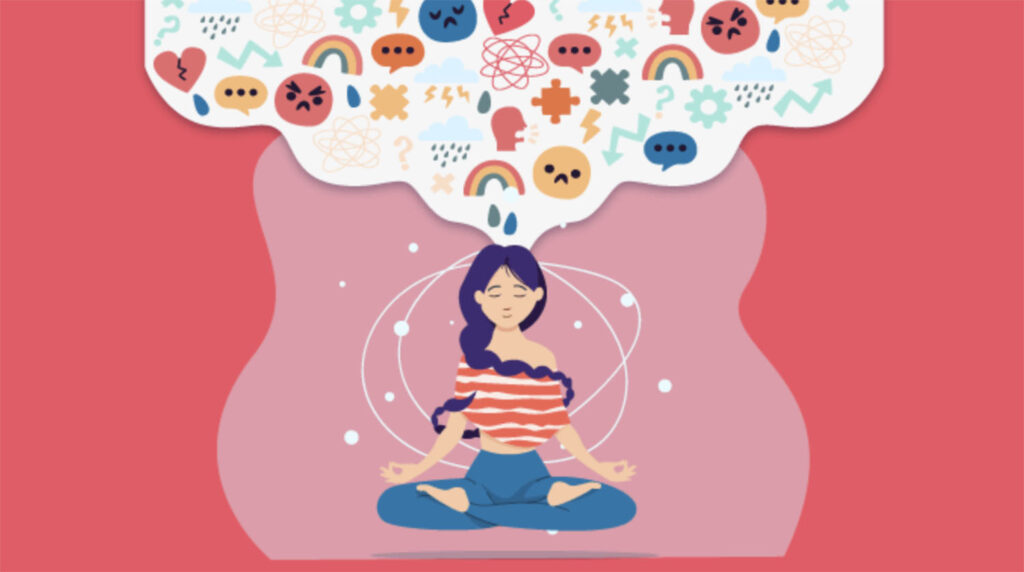By Noelia Almanzar, Alliance Intern from Rutgers University ‘26
This May we honor Mental Health Awareness Month to shed light on mental conditions affecting millions across the globe. In a world in which progress is measured by technological advancements and miscellaneous objects, it is easy to overlook those contending with silent struggles of the mind. Despite these challenges, there is hope. If we open the door for conversation and acknowledge the stigmas surrounding mental health, we can create a safe space for anyone who may be struggling.
According to the National Alliance on Mental Health (NAMI), 1 in 5 US adults experience mental illness and 1 in 6 US youth experience a mental health disorder each year. The National Survey on Drug Use and Health found 59.8% of youth with major depression did not receive mental health treatment. Neuroscientist and psychiatrist Dr. Thomas Insel writes, “For virtually every mental illness we have an effective treatment. We know what to do, we have effective interventions…and yet we have been unable to marshal the collective will to end this crisis.”
Some of the Steps I’ve Found that Work
The journey to wellness, though different for everyone, requires kindness and support from oneself and others. From my own experience, I find that taking consistent breaks from social media and spending time in nature alleviates the surreal pressures that follow online expectations. Being kind to myself and reaching out to others not only grants me the chance to slow down in today’s busy world but also allows me to cultivate relationships that are truly more fulfilling than doomscrolling.
Developing meaningful relationships, checking in on others, and exercising self-care can promote a supportive and accepting environment. Practicing mindfulness and seeking help demonstrates remarkable strength that must not be undervalued. This is essential as we strive to destigmatize mental health.
Some of the Challenges in Getting Support
Stigmas surrounding mental health are a major reason why people are unable to get proper care. Whether self-imposed or projected onto others, stigmas lead to persistent doubt and hopelessness that constrict one from reaching out to others. These stigmas may make the difference for someone who seeks treatment but feels they are unable to do so.
It’s worth noting that many may be unaware that they have a mental condition because they lack discussions on mental health or lack a frame of reference to identify their symptoms. The reported numbers likely underestimate the true prevalence of illness due to various stigmas discouraging people from discussing their issues. In light of these statistics, we must understand the barriers that prevent people from seeking the necessary support.
The Need for Culture Change Around Mental Health
As mental health continues to be shrouded in misunderstanding, it is important to deconstruct negative stereotypes with unwavering compassion and empathy to foster a culture without the shame of asking for help. By dismantling the barriers between scrutiny and security, those with mental illnesses can find the assistance they need.
Being open to conversations surrounding mental health enables us to advocate for a world full of understanding and break the shame associated with seeking treatment. As we celebrate Mental Health Awareness Month, let us not only raise awareness but also inspire profound change in how we perceive and address mental health.
Helpful Resources
If you or someone you know is struggling with their mental health, start the conversation. Here are some resources:
Learn more about mental illness at the National Alliance on Mental Health (NAMI).
The 988 Lifeline provides 24/7, free and confidential support for people in distress, prevention and crisis resources for you or your loved ones, and best practices for professionals in the United States. Call or text 988 for the Suicide & Crisis Response Lifeline.
The Substance Abuse and Mental Health Services Administration’s National Helpline is a free, confidential, 24/7, 365-day-a-year treatment referral and information service (in English and Spanish) for individuals and families facing mental and/or substance use disorders. Call 1-800-662-HELP (4357) or send your zip code via text message: 435748 (HELP4U) to find help near you. Read more about the HELP4U text messaging service.
One of the many other interesting supports for mental health is for farmers who struggle with unique stressors. The Minnesota Department of Agriculture is offering farmers and livestock producers free, confidential tools to help with stress and mental health. Anyone can call 1-833-600-2670 or text FARMSTRESS to 898211.

